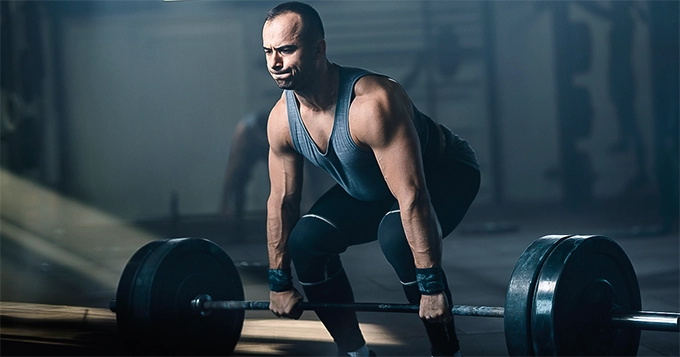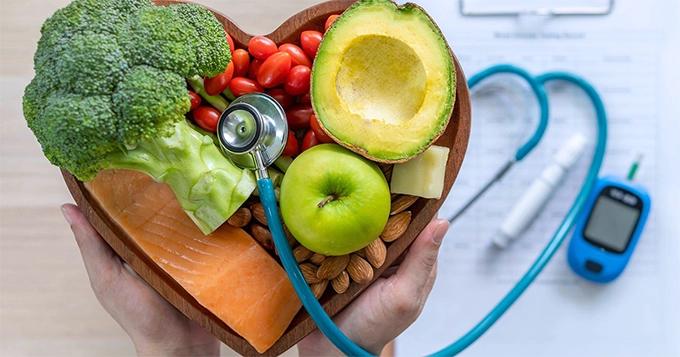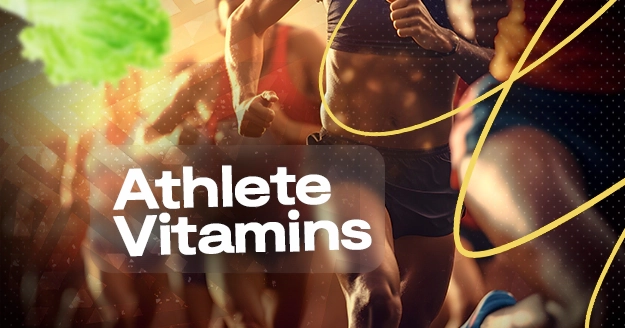It’s not easy being an athlete. Aside from the rigorous training, you also need to keep a close eye on your nutrient levels.
Vitamins for athletes are really important – well, not just for athletes but for everyone, actually. Generally, the body needs vitamins and minerals, commonly called micronutrients, for several processes. These processes include converting food into energy and maintaining bone health. They also have an impact on how the body functions.
In this article, we answered some common questions regarding vitamins that support athletes.
What vitamins can help with bone health?
Vitamin D. Strong bones and muscles require vitamin D. Without vitamin D, our bodies cannot efficiently absorb calcium, which is necessary for strong bones.
Vitamin C. Collagen is the building block of bone mineralization, and vitamin C is crucial for its production. Increased vitamin C levels have been linked in studies to higher bone density.
Krill oil (Omega-3). Based on some research findings, the omega-3 fatty acids in krill oil may support the health and strength of your bones and joints. According to studies, omega-3 fatty acids can help maintain bone density and lessen inflammation, both of which are factors in the development of bone and joint pain.
What vitamins can help with muscle recovery and growth?
If you are wondering what are the best vitamins for athletes in terms of speeding up muscle recovery and growth, this list can help you.
Vitamin D. Studies have revealed that athletes with vitamin D deficiency who take supplements have increased muscle strength. Vitamin D levels in serum are linked to improved athletic performance and lower injury rates.
Vitamin C. Vitamin C is a powerful antioxidant. Antioxidants help the body recover itself. It is an essential vitamin for tissue repair and aids in hastening the recovery of muscle fibers after a strenuous workout.
B vitamins. B-complex vitamins also help your body process protein and amino acids. This is significant because the capacity to digest amino acids aids in muscle healing, which is necessary to replace lost protein when muscles are torn.
Omega-3. Due to their anti-inflammatory qualities, omega-3 fatty acids may help athletes and their performance by speeding up muscle repair and reducing soreness. Both amateur and professional athletes may benefit from taking supplements or eating more of the recommended dietary allowance.
What vitamins improve heart health?
An athlete has to get oxygen and nutrients to every region of his or her body when engaging in vigorous physical activity. This means the athlete needs an effective cardiovascular system, including a healthy heart that can pump as much blood as possible.
Good heart function can allow athletes to perform at their peak, enhancing their endurance and reducing fatigue.
B vitamins. Vitamins B6, B9, and B12 may reduce the risk of heart disease and stroke. B vitamins improve circulation by assisting your body in the production of fresh red blood cells that carry oxygen to your tissues and organs.
Omega-3. It has been discovered that omega-3 fatty acids are good for the heart. Positive outcomes include reducing blood pressure, lowering cholesterol and triglyceride levels, and acting against blood clotting and inflammation.
CoQ10. It has been suggested that CoQ10 supplements can help blood pressure in hypertensive individuals, which is critical for their cardiovascular health.
Vitamin D. Monitoring your vitamin D levels may improve the condition of your heart. According to research, vitamin D insufficiency is frequently connected to chronic heart failure.
Magnesium. Magnesium plays a vital role in muscle contraction; thus, the treatment of a magnesium deficiency is believed to help blood vessels contract and improve blood pressure.
What vitamins provide energy to the body?
B vitamins. The eight B vitamins—thiamin, riboflavin, niacin, pantothenic acid, B6, biotin, folate, and B12—are responsible for the majority of energy production because they support cell metabolism, aid in the body’s conversion of carbs and lipids into energy, and transport energy-containing nutrients.
Vitamin C. Make sure you’re consuming enough vitamin C because deficiencies can cause symptoms like weakness and fatigue. A cause-and-effect relationship between the intake of adequate levels of vitamin C and reduced tiredness and fatigue has been established.
What vitamins can help boost the immune system?
Vitamin C. Since vitamin C is crucial in many aspects of the immune system, increasing immunity is one of the main reasons individuals take vitamin C supplements. Vitamin C promotes the development of two types of white blood cells (lymphocytes and phagocytes) that assist the body in fighting illness.
Additionally, it improves the efficiency of white blood cell function while guarding against harm from potentially dangerous substances like free radicals.
Vitamin D. By affecting the activity of immune cells that trigger certain antiviral responses, vitamin D can strengthen immunity and aid in the battle against infection. Immune cells like macrophages, neutrophils, and natural killer cells have receptors that vitamin D binds to.
Zinc. This is one of the most crucial sport vitamins. The immune system needs zinc to remain strong. This is crucial for athletes because missing vital workout time due to a viral infection or other illness can be costly.
Is it good for athletes to take vitamin supplements?
Some vitamin supplements for athletes are helpful in giving additional nutrients to athletes who have cut out a food group owing to a dietary allergy or another medical condition. Athletes who need to add a few pounds or make up for a vitamin deficiency can also benefit from supplements.
Athletes might try to increase their performance in a healthy way by taking vitamins and supplements, but more research is needed to identify which supplements are truly useful. Before you start to use any new vitamins or other supplements, consulting a doctor is recommended.
What is a safe dosage?
The right dosage can vary depending on the type of vitamin, age, and gender.
For example,
Vitamin D recommended intake for someone aged 1-70 years old (male or female) is 15 micrograms or 600 IU.
The recommended daily intake or RDI for total omega-3 is 1,100 milligrams (mg) for women and 1,600 mg for men.
For men and women, the recommended daily allowances for vitamin C are 90 mg and 75 mg, respectively.
It is important to know, though, that athletes might need higher dosages since they are constantly putting their bodies under stress, thus losing nutrients through sweat and need more nutrients to recover optimally.
Conclusion
Vitamins for athletes are crucial for producing hemoglobin, regulating bone density, and stimulating the immune system. Therefore, it can be necessary to increase micronutrient consumption to support the development, maintenance, and repair of lean body mass in athletes.









